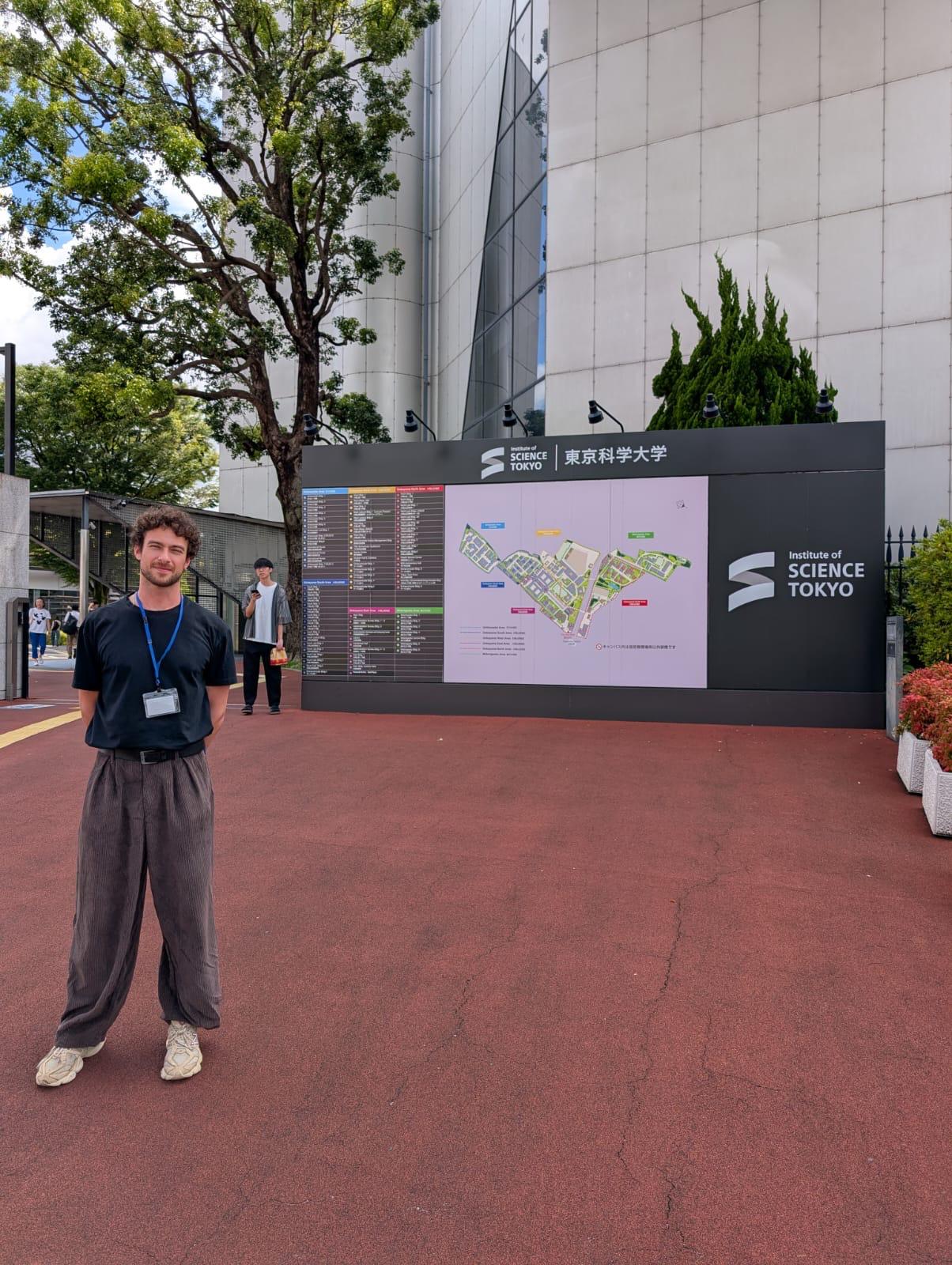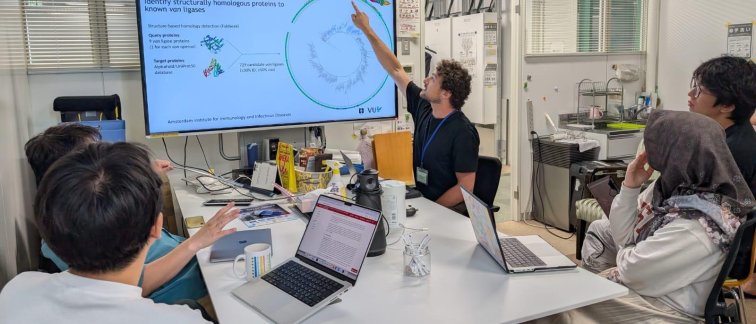The Amsterdam institute for Immunology and Infectious diseases (AI&I) is committed to supporting innovative research and fostering international collaboration. In 2025, the AI&I International Work Visit Grant enabled PhD student Nicholas Pucci (Medical Microbiology & Infection Prevention, Amsterdam UMC) to spend 80 days at the School of Life Science and Technology, Tokyo Institute of Technology, under the supervision of Dr. Takuji Yamada.
Antimicrobial resistance (AMR) remains a major global health challenge, with many resistance genes still unidentified. The primary aim of this international work visit was to gain practical experience with state-of-the-art AI methods to address the limitations of traditional, reference-based AMR prediction tools. Dr. Yamada’s laboratory is recognized for its expertise in deep learning and AI-driven microbiome analysis, as well as the development of innovative tools such as DeepES for functional prediction of orphan enzymes.
During the visit, a structural bioinformatics approach was adopted, combining Foldseek and Spacedust with DeepES. This approach proved more effective than initially planned methods for investigating cryptic resistance mechanisms.
Nicholas Pucci focused on three core objectives during his work visit:
- Predicting AMR Genes: Foldseek was used to identify potential vancomycin resistance proteins across multiple bacterial taxonomic groups, leveraging protein structural similarity rather than sequence-based predictions. This revealed vancomycin resistance potential that conventional methods had missed.
- Characterizing Unannotated Enzymes: Spacedust analysis uncovered various operon architectures associated with these proteins, indicating the widespread presence of cryptic resistance operons in bacterial genomes.
- Expanding Functional Networks: The analysis, still ongoing, is being expanded to thousands of genomes from diverse species and environments to map the taxonomic and biogeographic distribution of these resistance mechanisms. While still ongoing, these efforts have already contributed to a deeper understanding of hidden resistance reservoirs in bacterial communities.
Building expertise and international networks
This international work visit provided PhD candidate Nicholas Pucci with access to advanced structural bioinformatics methodologies and expert supervision not readily available at Amsterdam UMC. The experience with Foldseek and Spacedust enabled rapid identification of antimicrobial resistance proteins and operon structures based on 3D structure, revealing mechanisms overlooked by traditional methods. The collaboration with Dr. Yamada’s team offered intensive training, enhanced analytical and software development skills, and broadened Nicholas’s expertise in computational microbiology.
The visit also facilitated valuable professional connections with researchers at Tokyo Institute of Technology and Keio University, leading to discussions about future collaborations. These technical capabilities and networks will directly benefit ongoing and future research at AI&I.

‘The AI&I Work Visit Grant has been invaluable for expanding my technical skills, strengthening my research, and building international collaborations. Experiencing a different academic and cultural environment has given me new perspectives and greatly contributed to my professional growth. The expertise and connections gained will directly benefit my PhD research and future career.’
Nicholas Pucci - PhD candidate Medical Microbiology & Infection Prevention at Amsterdam UMC
For more information contact Nicholas Pucci (n.pucci@amsterdamumc.nl).
Text: Nicholas Pucci and Esmée Vesseur

